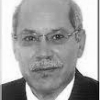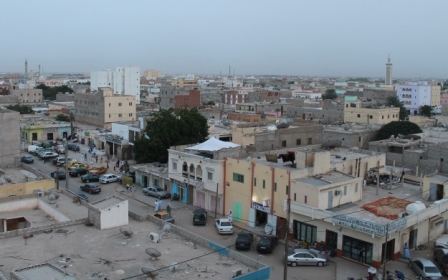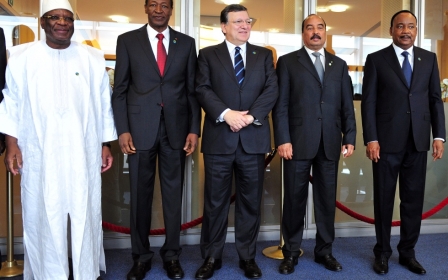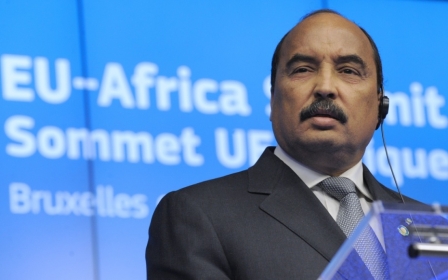Mauritania: The land the world forgot
Until very recently, most people had never heard of Mauritania; for the geographical space it occupies had been referred to, throughout history, as “Bilad Tekrur”, “Chinguit”, Bilad el Bidaan” (land of the Moors). Such a space had never harboured a known central state. It was only in 1959 that the French colonial administration gave it the Christian name: “la Republique Islamique de Mauritanie”. No marking event had ever since attracted the attention of the world to the fledgling state that Mauritania was.
Being an arid, under-populated and apparently very poor country, it did not seem to be of great interest to anybody. Not very many people know either that this barren territory - contiguous to the Maghreb and the Sahel, and belonging to both - used in fact to be the cradle of the famous Almoravid movement, which, in the 11th century, had conquered Ghana’s empire, North Africa and parts of Iberia.
Fewer people still could foresee the crucial role Mauritania would play in the region in the 21st century - to preserve peace, security and stability therein; let alone to weigh up and appraise the various natural resources the country is endowed with.
Decades after its political independence from France, Mauritania is hardly known, be it in Africa, in the Arab world, in Europe, in America or Asia.
Abysmal ignorance
I had many opportunities during the 70s and the 80s to fathom the abysmal ignorance people had of Mauritania. I remember that during a visit to Cairo, back in the 70s, an Egyptian gentleman remarked when I said I was from Mauritania: “Oh, you’re from Britannia and you speak good Arabic!”
While an American, who enquired after my origins while at a party, replied: “Ah! Montana? I see, we actually belong to neighbouring states.”
The usual response, however, is typified by a remark from a Canadian: “Mauritania? Where’s that?”
Now I fancy that if some ordinary Spaniards are asked about Mauritania, they would probably say that it is the last “maureria” that survived the holy “reconquesta”! Ordinary people in Britain may likewise be at a loss to give precise indications about Mauritania should the need arise; whereas others more knowledgeable might perhaps say that Mauritania is the fatherland of Shakespeare’s Othello, the country of some of the characters in John Dryden’s plays, and the homeland of the noble Moors much talked about among the British literati during the 17th century.
However, as Mauritania turns out to possess plentiful fish resources, as well as significant natural resources, such as iron ore, copper, phosphate and gold, it is garnering worldwide attention.
This resource-rich state is also proving to be a key player in the regions of the Arab Maghreb and the Sahel, as well as an efficient partner in the war launched against the organised crime networks, al-Qaeda and the illegal Europe-bound emigration. Consequently, foreign political leaders and policymakers, as well as the business world, now pay more attention to Mauritania as they realise the variety and magnitude of benefits that can be derived from close cooperation with this previously forgotten land.
On the economic plan, Europeans are now competing with Japanese, Chinese, Koreans and others to fish along Mauritanian’s 700 kilometre-long coasts. Canadians, whose gigantic companies exploit Mauritanian gold, are much more aware of where Mauritania is.
On the political plan, the Americans are now joining hands with Mauritania to deal hard-hitting blows to al-Qaeda in the Sahel and in the Arab Maghreb regions.
Mauritania even enjoys the title, “the land of a million poets”, a name bestowed on it thanks to the recurrent successes of the brilliant Mauritanian poets in the festival of poetry held annually in Sharjah (UAE).
Has Mauritania successfully capitalised on the geostrategic position it occupies, the resources it owns, the cultural aura it enjoys in the Arab world, and the multidimensional cooperation it has developed with various countries of the world to achieve economic prosperity, political stability and social harmony to its citizenry?
In other words, how does the country fare in terms of entrenchment of democracy, and the fundamental freedoms and human rights it ensures? Between 1978 and 2008, Mauritania has known six military coup d’état, two of which have actually toppled democratically elected governments. The author of the latest of them is no other than the incumbent president general Mohamed Ould Abdelaziz, who, after the coup he staged in 2008 against the constitutional government of Sidi Cheikh Abdellahi, resigned from the army, run for the presidency and won the election in August 2009.
During his five-year mandate, which has just ended, General Aziz had delivered numerous achievements on economic, social, cultural and military plans.
Thanks to him, the festering corruption was significantly reduced; the fundamental freedoms (those of speech and the press, in particular) were ensured. A successful war against terrorism was waged and won in collaboration with neighbouring countries and friendly partners. The foreign investments have steadily increased, as the confidence of investors in the credibility of Mauritania grows deeper. As a result, the country is financially afloat and the annual economic growth rate reached 6 percent in 2014.
Real poverty
Yet the prosperity Mauritanians expect has not, so far, materialised, as more than 40 percent of the populace live under the real poverty line. In terms of health, literacy and employment, much is still left to be desired.
Furthermore, the sky-rocketing prices of the main commodities are increasingly eroding the receding incomes of the overwhelming majority of the citizenry. On the political plan, there is a sharp polarisation between the governmental majority and the opposition parties. This uncompromising confrontation between the national political actors threatens the social peace and undermines the constitutional institutions of the country.
Such divisive polarisation is due, on the one hand, to the inability of the opposition parties to coordinate their actions and harmonise their conflicting views, and on the other hand, to the unwillingness of the government to initiate a serious dialogue with the opposition parties about the main national controversial issues so as to reach a consensus satisfactory to all parties.
This confrontational attitude has had an adverse impact on the ongoing campaign for the presidential election, which is to be held two weeks from today; since all the major political parties have decided to boycott the exercise which they deem biased, exclusive, unfair and therefore unacceptable. Consequently, the ongoing campaign is rather lukewarm and dull, as many people think that the three candidates competing with the outgoing president do lack leadership stature and charisma.
So will the balance sheet of the numerous and undeniable achievements of the outgoing president make up for the exclusion of the main political parties from this ballot and ensure a peaceful aftermath in this land that was once so forgotten but is now enjoying geopolitical prominence? That remains to be seen.
- Mouhamed Lemine El Kettab is a lecturer in Nouakchott University, the chairman of the Club of the Mauritanian Intellectuals for Democracy and Development and the chairman of the Mauritanian branch of the Arab Organization for Human Rights.
The views expressed in this article belong to the author and do not necessarily reflect the editorial policy of Middle East Eye.
Photo credit: Chinguetti was a center of Islamic scholarship in West Africa (Wikicommons /Ji-Elle)
New MEE newsletter: Jerusalem Dispatch
Sign up to get the latest insights and analysis on Israel-Palestine, alongside Turkey Unpacked and other MEE newsletters
Middle East Eye delivers independent and unrivalled coverage and analysis of the Middle East, North Africa and beyond. To learn more about republishing this content and the associated fees, please fill out this form. More about MEE can be found here.





